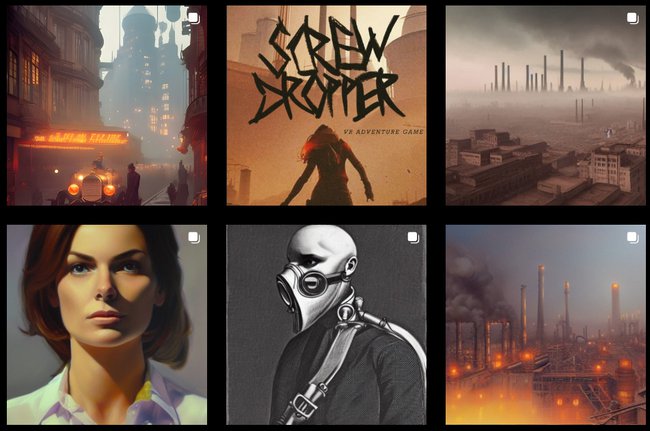A Project Experience: Insights into the Masterclass AVR

Lena Baumgartner
Student Ambassador for Interactive TechnologiesAs a Student Ambassador for Interactive Technologies, I advise prospective students on the degree programme and provide insights into our daily study routine.
When deciding on the interactive technologies master, you can choose between 3 masterclasses:
- Mobile
- AR/VR
- Industry 4.0
For me personally, AR/VR was the most fitting, as I wanted to study an unconventional topic and more importantly, one I hadn’t studied before.
But now: what is it that we do in this masterclass?
Well, let me tell you: The first thing that you have to get used to are the red marks of the VR headsets on your forehead. I am sure that mine are permanently imprinted on my forehead by now.
Jokes aside, you are going to touch on a lot of different subjects, but I think the most important thing to know is that you will be working mainly with the Unity Engine.
Developing VR in Unity is fun, but also challenging, especially in an area of expertise that doesn’t have any proper rules or documentation yet. There is a lot of trial and error but it can be very rewarding when figuring out the problem at hand.
Creativity, out-of-the-box thinking and problem solving are skills that will be evolved alongside the VR journey.
Furthermore, 3D modelling is a part of the masterclass and you will study modelling, texturing as well as rigging and even a bit of animating. When working in a virtual space, audio takes on a very important role and the possibilities of it will be explored within the audio branch of the masterclass.
When tackling AR development, you will recognise it has its similarities to VR development but at the same time they share significant differences. Again, Unity is the engine of choice and it brings a whole new layer of possibilities to the table, which also enables the students to be their truest creative selves.
To show you what your masterclass project could look like, I will give you some insights into ours:
When deciding on the direction of our project, my classmate and I were very keen on staying in the gaming sector.
- We finalised the idea of a VR adventure game in the first week of the second semester.
- During the second semester, we developed prototypes and an idea began to form in my head regarding the story and setting of the game.
- Over the summer holidays, we began splitting our tasks, thankfully, we were interested in taking over complete opposite tasks: Alex, THE lead developer, programmer, and ultimate Unity magician and then me, the narrative designer, story creator, and art director.
As we continued our project journey, the game mechanics were at some point fully programmed, the story with its characters was fully fleshed out, and the concept art was finished. It was time to tackle the actual level we wanted to bring to life.
After hours of level furnishing, trap placing, and mood setting, we had a scene that was playable, and we were confident in. That was until our first playtest, and boy, did that bring us down to earth faster than anything ever has.
After receiving feedback and criticism, we used it to improve the experience even further, and soon began a journey of polishing and perfecting. This took longer than we anticipated but that’s basically the cycle of game development.
And now, a year after of ups, downs, and intense crunch-time, it is done. And we are proud of it.
Working on the game, we learned a lot regarding level design and level workflow, especially that you always need to imagine the player as an individual completely void of any critical thinking skills and build the level design according to that.
Apart from evolving our game development skills, we also gained experience in raising a brand that grows around the game, a franchise so to speak. Organising team members and managing the presentation of your brand for specific events such as a vernissage. Even though we were such a small core group of the team (there were two of us), we made it happen and I feel like that caused the biggest personal growth in both of us.
It is very fitting that my master’s thesis will revolve around environmental storytelling in RPGs and our game was a first step into the complex subject.
To try myself in environmental storytelling for the first time, I focused on designing notes, posters, and letters from within the game world towards the player and in my thesis, I will take it one step further and try to encapsule storytelling within misc-en-scene.
If you want to know more about the game and the progress you can follow us on Instagram: @un.usualgaming
However, I do want to note, that you DO NOT have to develop a game for the masterclass project. It depends on the group of students and their interests and skills.
If I piqued your interest, do not hesitate to send me an email, I am happy to answer it.
